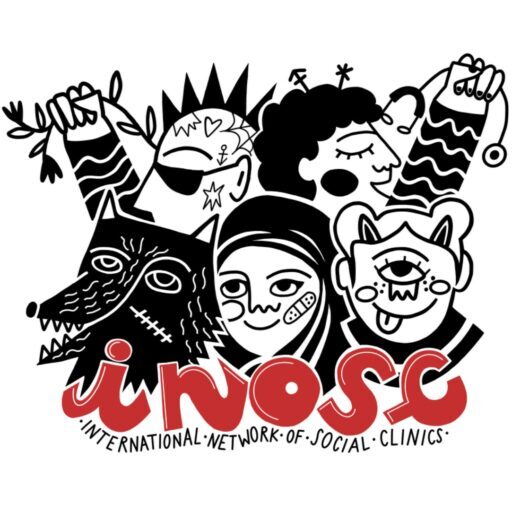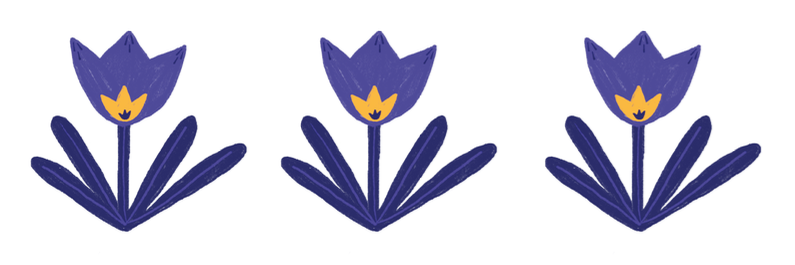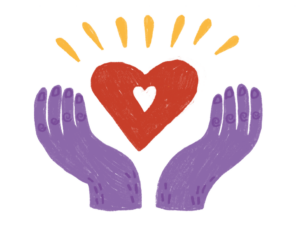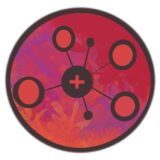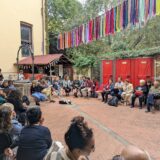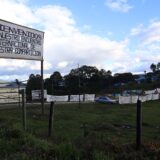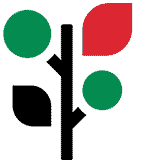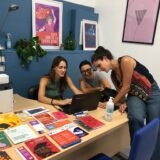section 7: Participation
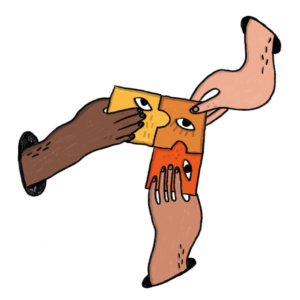 Engaging the community in primary healthcare is widely recognized as essential even within dominant healthcare models. However, the marketization of healthcare and the rise of individualistic, commodified logic have overshadowed its social dimension. In general, healthcare systems usually restrict participation primarily to individuals, focusing on the specific diseases that affect them. However, local communities or the person’s relevant communities are only sporadically involved. As a result, participation in dominant models is often reduced to a process that objectifies patients, transforming them into passive recipients of care who are identified only by their illness, rather than as whole persons. In this process, anything unrelated to the individual’s illness is excluded and rendered invisible. Furthermore, participation rarely reaches the decision-making levels where healthcare services are designed and organized, so people and communities are excluded from having a say in the structure and provision of their care.
Engaging the community in primary healthcare is widely recognized as essential even within dominant healthcare models. However, the marketization of healthcare and the rise of individualistic, commodified logic have overshadowed its social dimension. In general, healthcare systems usually restrict participation primarily to individuals, focusing on the specific diseases that affect them. However, local communities or the person’s relevant communities are only sporadically involved. As a result, participation in dominant models is often reduced to a process that objectifies patients, transforming them into passive recipients of care who are identified only by their illness, rather than as whole persons. In this process, anything unrelated to the individual’s illness is excluded and rendered invisible. Furthermore, participation rarely reaches the decision-making levels where healthcare services are designed and organized, so people and communities are excluded from having a say in the structure and provision of their care.
This process illustrates the approach of individualizing and delegitimizing dominant health services, which consider people responsible for their behaviors – such as smoking or unhealthy eating habits – without acknowledging the broader social, environmental, and structural factors that affect health. This model assumes that individuals can change their health through their choices, without considering their lived realities as active citizens with complex health needs and knowledge of their own bodies.
In contrast, for us participation is a wider concept with multifaceted significance. It is a structural aspect within and across the spatial boundaries of the clinics, highlighting the role of the people who access the clinics but also the broader political aspirations of the core members of social clinics. We believe that anyone entering a social clinic should not be reduced to their disease and should be recognized as a whole person with their own body of experience, relations and knowledge. However, claiming the uniqueness of the individual does not mean that those who get sick get sick alone (and have to go through the process alone). Instead, we aspire to the development of new healthcare models where community bonds are vital, and where personal and collective well-being are recognized as strictly interconnected. In this regard, we state that only a sound and caring community (in terms of environment, living conditions, nutrition,and networks of human and non-human relationships) can allow people to live a healthy life and be capable of caring in turn.
For these reasons the members of the social clinics, through their political aspirations, egalitarian ethos and cooperative practices, transform and create new social relations and a new value system: they cooperate as equals, they decide collectively and horizontally, and they nurture conditions to critique scientific, political and organizational models. Within social clinics, we envision organizational models which can create safe spaces for listening and enhancing the mutual exchange of insights and visions. We believe that mutualism can be strengthened by sharing experiences of suffering and resilience.
These exchanges take on a whole new meaning once we stop seeing knowledge as a one-sided attribute. The ‘problem-holder’ is not just a silent patient waiting for an explanation, but a holder of knowledge of experience and their contribution is of fundamental importance in helping the ‘medical expert’ find a solution, not only in this individual case but in many others.
Moreover, we believe that mutualism can be practical, as it encourages acts of care by incomers toward the social clinic itself, as ti often occurs in our daily practice (i.e. translation and cultural mediation interventions by migrant incomers in favor of other fellow citizens, support in the preparation of events and/or social meals). However, we strongly believe participation in these terms should always be understood as voluntary, as an act of care in itself and it must never become mandatory.
microclinica Fatih
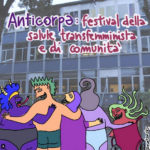 At Microclinica Fatih we have implemented co-participative initiatives. One example involved an Arab-Italian-speaking woman, S, who came to the clinical service asking for some help in buying a very expensive therapy.
At Microclinica Fatih we have implemented co-participative initiatives. One example involved an Arab-Italian-speaking woman, S, who came to the clinical service asking for some help in buying a very expensive therapy.
Over time, S became involved in supporting her friends-who did not speak Italian-by facilitating their visits to the clinic and helping with language mediation, thus actively contributing to the process of care.
Also, on the occasion of some social events organized by the clinic, s cooperated in the organizational process, proposing herself in helping to prepare food for the events.
village 2 santé
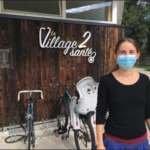 At Village 2 santé we have “la place du villages” a group of women who decide with the health mediator (a community member who is structurally involved in the clinic) what events
At Village 2 santé we have “la place du villages” a group of women who decide with the health mediator (a community member who is structurally involved in the clinic) what events
they can organize to help promote healthcare for the community.
For example, they organized a sauna/massage session, prepared natural health products, organized a karaoke, and many other activities.
This kind of participation offers real empowerment!
ambulatorio popolare caracol olol jackson
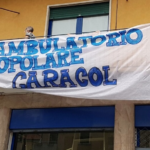 Our social clinic, in its various operational roles, is a place where it is possible to find a space for discussion, for receiving suggestions or support. ti is open to members of the Association, non-members, and supporters of the Project. This is what we define as our Community.
Our social clinic, in its various operational roles, is a place where it is possible to find a space for discussion, for receiving suggestions or support. ti is open to members of the Association, non-members, and supporters of the Project. This is what we define as our Community.
We are also open to other projects and initiatives. We offer access and support to volunteers coming from various other projects, such as Social Workers, civil Service, and people who operate in prisons. For each case, we look at their skills to identify how they can contribute to the Community of our Association. We focus on their present condition, aiming to appreciate and improve it, while respecting their past and life trajectories as personal and private matters, without pressuring them to share unless they choose to do so.
laboratorio di salute popolare
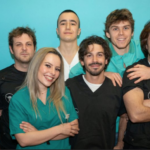 During the pandemic, activists from the social clinic Laboratorio di Salute Popolare set up a project aimed at meeting, supporting (bringing food, clothing and primary care) and helping people who lived on the streets in Bologna. The primary goal was to create trustworthy relationships with those in contexts of extreme social marginalization. Over time, this project evolved, with many individuals spending their days at the Labas social center (where the clinic operates), participating in its activities and organizing events. They began to meet, organize and support the space. At the beginning of winter, they organized a demonstration against the housing emergency, which is a central issue in our city.
During the pandemic, activists from the social clinic Laboratorio di Salute Popolare set up a project aimed at meeting, supporting (bringing food, clothing and primary care) and helping people who lived on the streets in Bologna. The primary goal was to create trustworthy relationships with those in contexts of extreme social marginalization. Over time, this project evolved, with many individuals spending their days at the Labas social center (where the clinic operates), participating in its activities and organizing events. They began to meet, organize and support the space. At the beginning of winter, they organized a demonstration against the housing emergency, which is a central issue in our city.
From this event, in January 2023, a new project was born: AIR. (autonomy, inclusion, resistance). The courtyard of the social center, after some renovations, has become a self-managed daytime space, equipped with showers, washing machines and a kitchen that everyone can use. Activists have initiated a process of continuing education as ‘health promoters’ bridging and connecting people who pass through the center, including neighbors, whose health needs (and desires) are listened to and addressed in reguar assemblies, lunches and meetings.
KIA
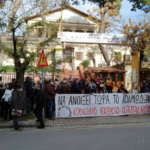 Based on the example of the KIA support network in the municipality of Thessaloniki, we can state that even the “minimum” of participation can be crucial for a self-governing social collective. In the almost 13 years of existence of the Social Solidarity Clinic, despite all the changes that have taken place in Greece on a social, political and economic level, the network of people who support our action and ensure that we have the opportunity to put into practice the provision of quality healthcare has remained stable.
Based on the example of the KIA support network in the municipality of Thessaloniki, we can state that even the “minimum” of participation can be crucial for a self-governing social collective. In the almost 13 years of existence of the Social Solidarity Clinic, despite all the changes that have taken place in Greece on a social, political and economic level, the network of people who support our action and ensure that we have the opportunity to put into practice the provision of quality healthcare has remained stable.
400 pharmacies in every neighborhood of the city collect medicines brought to them by their clients, external partners, private doctors of all specialties, psychologists and psychotherapists, as well as hospital doctors and nurses who provide free services to patients referred by the KIA. Various professionals help with maintenance and repairs in the clinic, and visual artists and musicians participate in exhibitions and concerts that we organize. All of this participation happens without financial gain and in alignment with KIA’s values and principles.
Conclusions towards future scenario
The International Network of Social Clinics (INOSC) is an open and ever-changing network of healthcare collectives which share a common vision of caring communities capable of guaranteeing everyone’s right to health. As we believe that bonds are fundamental, we aim to reinforce and expand our interconnection to create a stronger and wider network capable of sharing theoretical and practical experiences to keep our struggles moving.
This Manifesto is meant to be a starting point rather than a conclusion. For this reason, we encourage other collectives and activists, regardless of the countries and contexts in which they are operating, to join us in our fight to rethink and reimagine healthcare collectively.
collective health for healthy communities!
